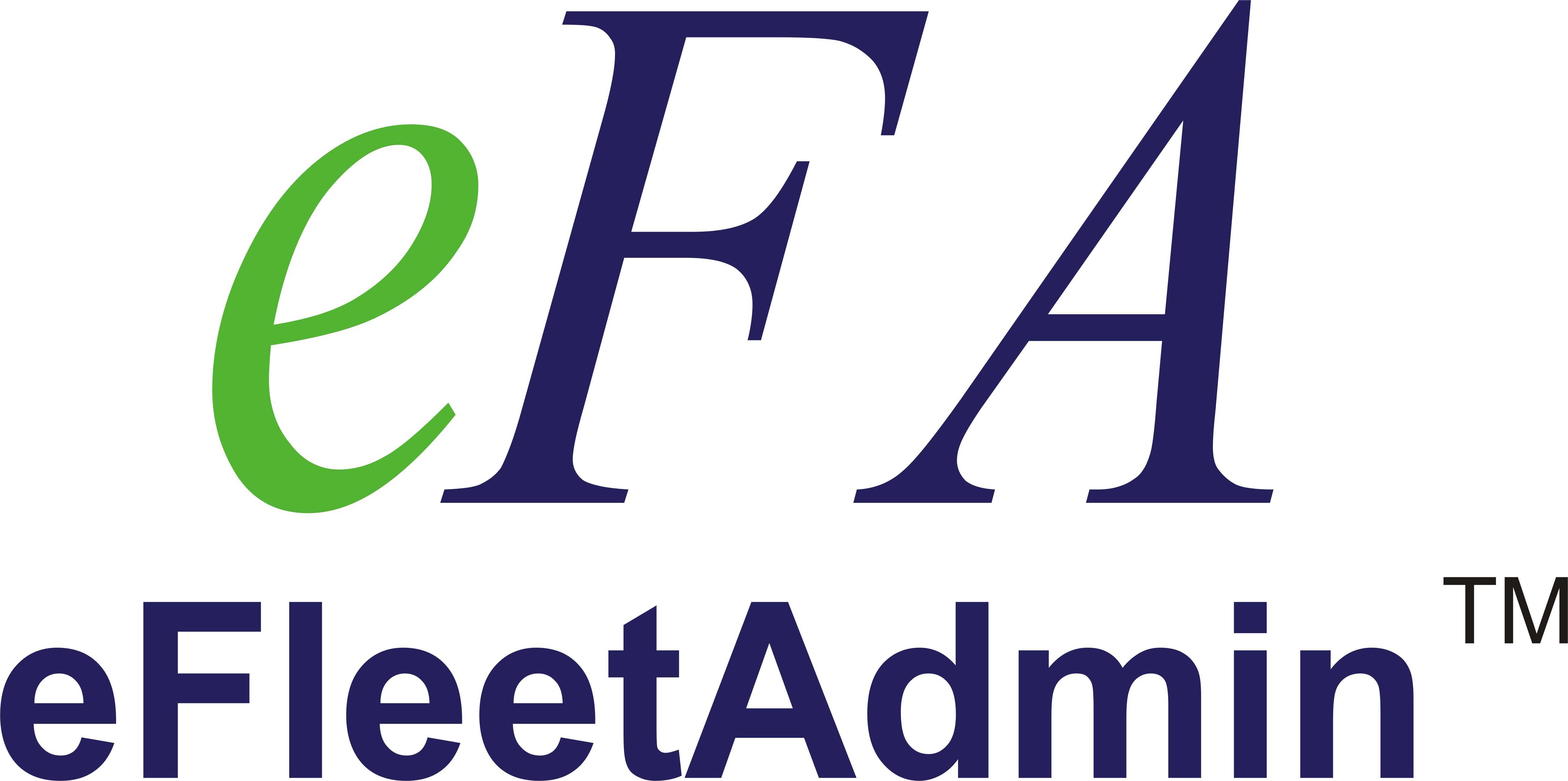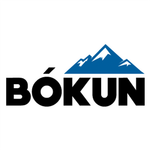Description

eFleetAdmin

Bokun
Comprehensive Overview: eFleetAdmin vs Bokun
As of my last update in October 2023, here's an overview of eFleetAdmin and Bokun:
eFleetAdmin
a) Primary Functions and Target Markets
eFleetAdmin is a fleet management software designed to streamline and optimize the operations of commercial vehicle fleets. Its primary functions include:
- Vehicle Tracking: Real-time GPS tracking of vehicles to monitor location and optimize routes.
- Maintenance Management: Scheduling and recording maintenance activities to ensure vehicle longevity and compliance.
- Fuel Management: Monitoring fuel consumption to reduce costs and improve efficiency.
- Driver Behavior Monitoring: Analyzing driving patterns to ensure safety and reduce wear and tear.
- Reporting and Analytics: Generating reports on various aspects of fleet operations for better decision-making.
Target Market: eFleetAdmin primarily targets logistics companies, delivery services, public transportation providers, and any business that requires efficient fleet management to reduce costs and improve operational efficiency.
b) Market Share and User Base
Exact market share and user base statistics for eFleetAdmin weren't specified as of the last update, but fleet management software is a competitive market with numerous players like Geotab, Samsara, and Verizon Connect, which dominate the industry. eFleetAdmin might cater to small-to-mid-sized enterprises looking for tailored solutions.
c) Key Differentiating Factors
- Customization: eFleetAdmin may offer customizable features that cater to specific industry needs.
- Integration Capabilities: The software might integrate with existing enterprise systems to provide a seamless workflow experience.
- Cost-Effectiveness: Relative affordability compared to larger, more established software providers could be a selling point.
Bokun
a) Primary Functions and Target Markets
Bokun is a cloud-based booking management platform primarily used within the travel and tourism industry. Its main functions include:
- Booking Management: Facilitates the entire booking process for tours, activities, and experiences.
- Distribution Channel Management: Connects with various online travel agents and booking platforms.
- Customizable Packaging: Allows businesses to create tailored travel packages and bundles.
- Payment Processing: Supports multiple currencies and payment gateways for seamless transactions.
- API Integrations: Enables connectivity with other systems like ticketing platforms and CRM systems.
Target Market: Bokun targets tour operators, activity providers, travel agencies, and destination management organizations aiming to streamline operations and improve distribution.
b) Market Share and User Base
Bokun, acquired by Icelandair and then by TripAdvisor, benefits from strong backing, allowing it to carve out a market niche, especially among smaller-to-medium-sized tour operators. It competes with similar platforms like Rezdy and TrekkSoft.
c) Key Differentiating Factors
- Integration with TripAdvisor: As part of the TripAdvisor group, Bokun has integrations that benefit from the platform's visibility and distribution reach.
- Easy-to-Use Interface: Known for its user-friendly design that requires minimal technical expertise.
- Scalability and Flexibility: Offers both small operators and larger businesses a range of features suitable to their size and needs.
Comparison and Context
While eFleetAdmin and Bokun serve different industries and functions (fleet management vs. travel booking management), they both address the need for operational efficiency and process optimization. In terms of market share, both are competing against larger, more established players in their respective fields. The key differentiators often boil down to integration capabilities, ease of use, and specific industry needs, with eFleetAdmin focusing on logistical efficiency and Bokun enhancing travel booking processes.
For the most current and precise data on market share and specific differentiators, consulting recent industry reports or the companies' announcements would be advisable.
Contact Info

Year founded :
2003
+91 80456 39000
Not Available
India
http://www.linkedin.com/company/efleetadmin

Year founded :
Not Available
Not Available
Not Available
Not Available
Not Available
Feature Similarity Breakdown: eFleetAdmin, Bokun
When comparing the features of eFleetAdmin and Bokun, both of which are platforms providing services in fleet management and travel booking respectively, we can draw some observations based on their core functionalities, user interfaces, and unique features.
a) Core Features in Common
While these platforms serve different primary users—eFleetAdmin with fleet management and Bokun with travel services—there can be some overlap in common business-oriented features:
-
Booking and Scheduling:
- Both platforms offer features to manage schedules and bookings. eFleetAdmin might provide vehicle reservation and maintenance scheduling, while Bokun offers booking systems for tours and activities.
-
Resource Management:
- eFleetAdmin handles vehicle tracking and fleet data management, and Bokun manages tour resources, guides, and inventory (such as available tickets or spaces).
-
Reporting and Analytics:
- They both likely offer reporting tools to analyze usage, bookings, and resource allocation, though with different focuses—fleet efficiency for eFleetAdmin and sales/performance analytics for Bokun.
-
Customer Management:
- Both might include CRM capabilities to some extent, allowing for client information management and service optimization.
b) User Interface Comparison
-
Design and Usability:
-
eFleetAdmin: Typically designed for logistics professionals, focusing on functionality and data visualization. Interfaces might prioritize streamlined workflows and simple dashboards that provide a quick overview of fleet status.
-
Bokun: Designed for travel operators and might focus more on aesthetics, interactive booking modules, and user-friendliness tailored for customer-facing components.
-
-
Customization and Accessibility:
-
eFleetAdmin interfaces could offer customizable dashboards that cater to operational metrics and compliance requirements.
-
Bokun may provide more customizable booking widgets and check-out flows that can be embedded into partner websites easily.
-
c) Unique Features
-
eFleetAdmin:
- Telematics Integration: Advanced fleet tracking with telematics integration to monitor real-time vehicle diagnostics and driver behavior.
- Compliance Tools: Features specifically designed for vehicle and driver compliance, which might include regulation checklists and automated reminders.
-
Bokun:
- Dynamic Packaging: The ability to offer dynamically packaged travel experiences, combining multiple travel services into a single offering.
- Marketplace Integration: Plugins and integrations that allow for seamless distribution across different travel marketplaces and OTAs (Online Travel Agencies).
In summary, while eFleetAdmin and Bokun share some high-level functionalities related to resource management and analytics, their interfaces and feature sets are largely tailored to their specific industries—fleet management for logistics-focused tasks and travel bookings for tourism operators. Each product has unique features aligning with their sector's needs, such as telematics in eFleetAdmin and marketplace integrations in Bokun.
Features

Not Available

Not Available
Best Fit Use Cases: eFleetAdmin, Bokun
eFleetAdmin
a) Best Fit Use Cases for eFleetAdmin:
-
Transportation and Logistics Companies: eFleetAdmin is ideal for businesses that manage fleets of vehicles, such as trucking companies, delivery services, and logistics firms. It offers comprehensive fleet management solutions that streamline operations, improve efficiency, and reduce costs.
-
Public Transportation: Municipalities and transit authorities can use eFleetAdmin to manage buses and other public transport vehicles efficiently, ensuring timely maintenance and scheduling for smooth operations.
-
Corporate Fleets: Companies with a large number of company cars or service vehicles can benefit from eFleetAdmin’s tracking, maintenance scheduling, and fuel efficiency monitoring features.
-
Construction and Heavy Equipment Rentals: Firms that operate or rent out construction vehicles and machinery can use eFleetAdmin to track equipment utilization, manage maintenance schedules, and optimize fleet use.
-
Utility Companies: Organizations like electric, water, and gas utilities with large field service teams can benefit from enhanced route planning and vehicle maintenance features.
Bokun
b) Scenarios for Preferred Use of Bokun:
-
Tour Operators and Travel Agencies: Bokun is particularly well-suited for tour operators and travel agencies that require a robust booking management system to offer and manage tours, activities, and events.
-
Activity Providers: Adventure companies offering activities such as zip-lining, kayaking, or guided hikes can use Bokun to streamline booking processes and manage customer experiences efficiently.
-
Accommodation Providers: Small hotels, bed and breakfasts, or vacation rental owners can utilize Bokun to manage reservations, pricing, and guest communication seamlessly.
-
Attraction and Event Venues: Museums, amusement parks, and event venues can use Bokun to manage ticket sales and inventory, organize visitor schedules, and enhance the overall visitor experience.
d) Catering to Different Industry Verticals or Company Sizes:
-
eFleetAdmin: Generally targets medium to large enterprises involved in transportation, logistics, construction, utilities, and public transport sectors. Its robust fleet management capabilities cater to companies looking to optimize large or complex vehicle and equipment operations.
-
Bokun: Designed for a wide range of company sizes, from small local activity providers to larger tour operators. Its scalable booking and management features make it suitable for businesses in the tourism and hospitality sectors, with adaptability to accommodate varying scales of operation.
Each product addresses specific needs within its respective verticals, offering feature sets tailored to optimize processes, increase efficiency, and enhance customer satisfaction specific to those industries.
Pricing

Pricing Not Available

Pricing Not Available
Metrics History
Metrics History
Comparing undefined across companies
Conclusion & Final Verdict: eFleetAdmin vs Bokun
To provide a conclusion and final verdict for eFleetAdmin and Bokun, let’s break down the analysis into the required components:
a) Overall Value
Overall Value:
- eFleetAdmin: Primarily focuses on fleet management solutions, offering comprehensive features for tracking, managing, and maintaining vehicles. Its value lies in optimizing fleet operations and reducing costs through efficient management.
- Bokun: Specializes in booking management solutions, particularly for the travel and tourism industry. It integrates various aspects of booking, payment, and resource management, providing convenience and efficiency for travel businesses.
Best Overall Value: Considering all factors, the best overall value depends on the specific needs of the business:
- If the primary requirement is efficient fleet management to improve logistics and maintenance, eFleetAdmin offers more value.
- If the need is more aligned with managing bookings and operations within the travel sector, Bokun provides better value.
b) Pros and Cons
eFleetAdmin:
- Pros:
- Comprehensive fleet management tools.
- Can lead to cost savings through optimized vehicle utilization.
- Helps in predictive maintenance to reduce downtime.
- Cons:
- Highly specialized, may not be suitable for industries outside fleet management.
- Requires investment in training and integration for optimal use.
Bokun:
- Pros:
- Excellent for businesses in the travel and tourism industry.
- Provides an integrated platform for bookings, payments, and resource scheduling.
- Enhances customer experience with streamlined processes.
- Cons:
- May not be beneficial for businesses outside travel and tourism.
- Can involve costs related to licensing and transaction fees.
c) Recommendations
Recommendations for Users:
-
Assess Business Needs: Determine whether your business is more aligned with fleet management or booking management. This will guide you towards the appropriate choice.
-
Budget and ROI Consideration: Evaluate the cost against the expected return on investment. eFleetAdmin may require upfront investment in training and integration, whereas Bokun’s transaction-based model might increase costs as sales volume increases.
-
Industry Focus: Businesses outside the core industries catered by eFleetAdmin and Bokun should carefully assess their needs to avoid investing in overly specialized software that may not offer targeted benefits.
-
Trial and Feedback: If possible, take advantage of trial periods or demos offered by these platforms. Gather feedback from potential users in your organization to see which product suits their operational style and needs better.
-
Integration and Scalability: Consider the ease of integrating with your existing systems and the scalability of the software to align with future growth.
In conclusion, both eFleetAdmin and Bokun offer specialized solutions with distinct advantages. The decision should be made based on industry relevance, business needs, and potential ROI. Careful evaluation of your current processes and future goals will help in making an informed decision.
Add to compare
Add similar companies



